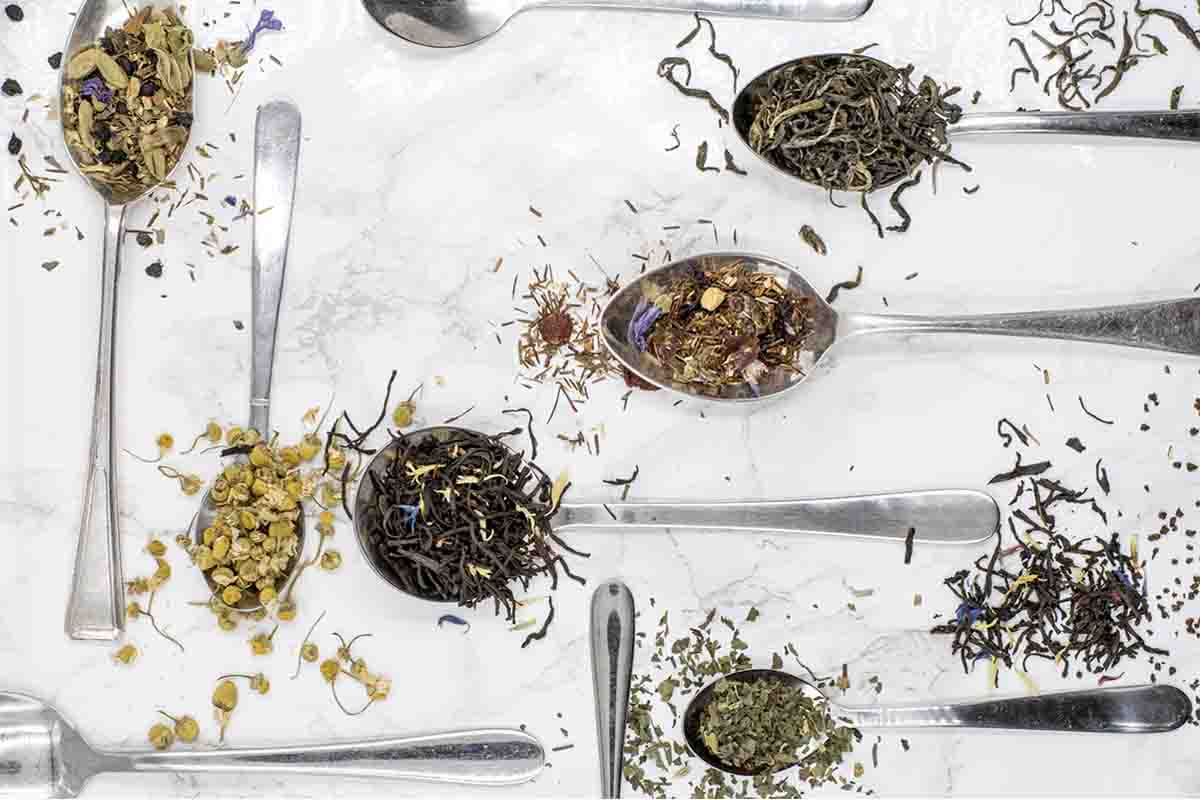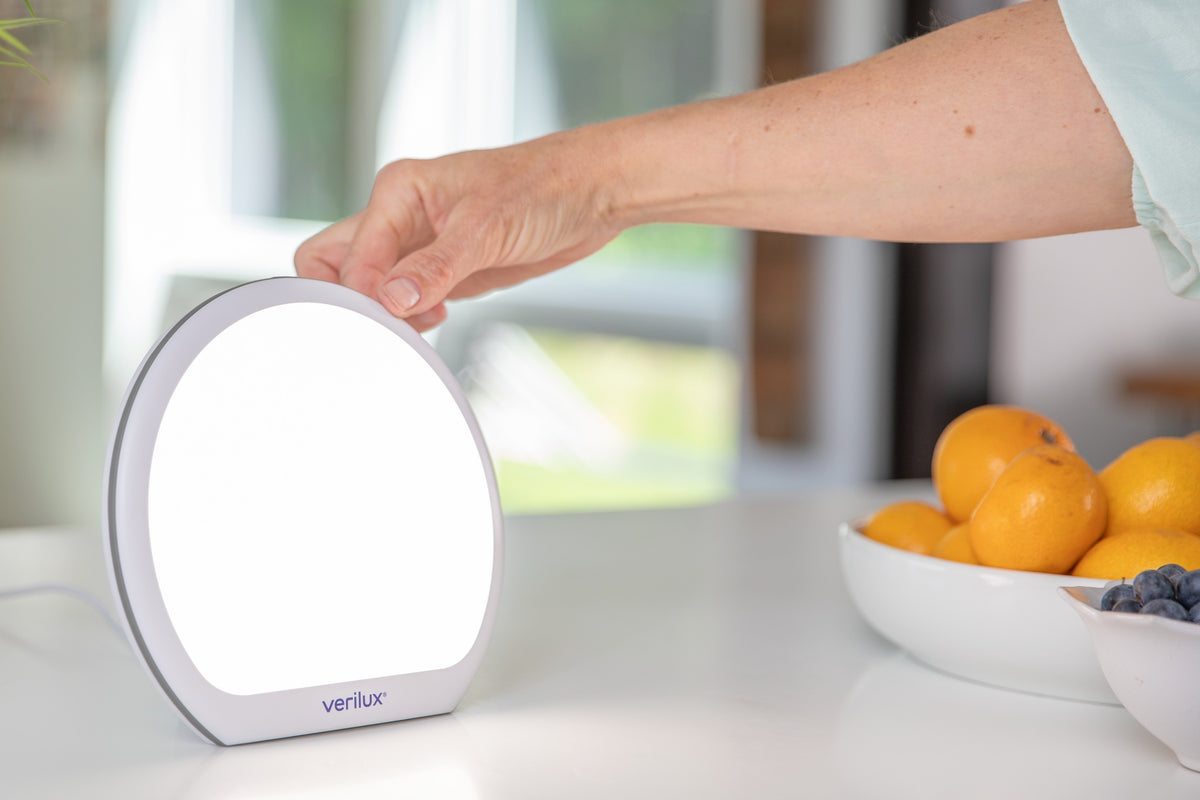Six foods to reduce stress and nourish your body.
Understanding Cortisol Levels
We all have stress from time to time. But when it goes on for weeks, or months, chronic stress can impact all the body's systems—especially the adrenal glands, small organs that rest on top of the kidneys and are responsible for releasing important hormones. One of these is cortisol, a stress hormone that regulates energy, reduces inflammation, and regulates blood pressure and blood sugar. It also controls the sleep/wake cycle: xfluctuate during the day, increasing in the morning when you need to wake up, and decreasing at night when it's time to sleep.
If you're in a state of constant tension and anxiety, the adrenal glands may not be able to keep pace and produce the necessary hormones to help you cope. The result: a condition called adrenal fatigue, includes symptoms such as nervousness, sleep problems, body aches, and depression. While adrenal fatigue isn’t recognized by the medical community, many naturopaths and integrative practitioners treat it as a true syndrome. In general, a diet that avoids sugar, caffeine, refined grains, and alcohol is recommended. And certain nutrients that relieve stress, promote calm, reduce inflammation, and balance blood sugar can also help.
6 Stress-Reducing Foods
Kefir
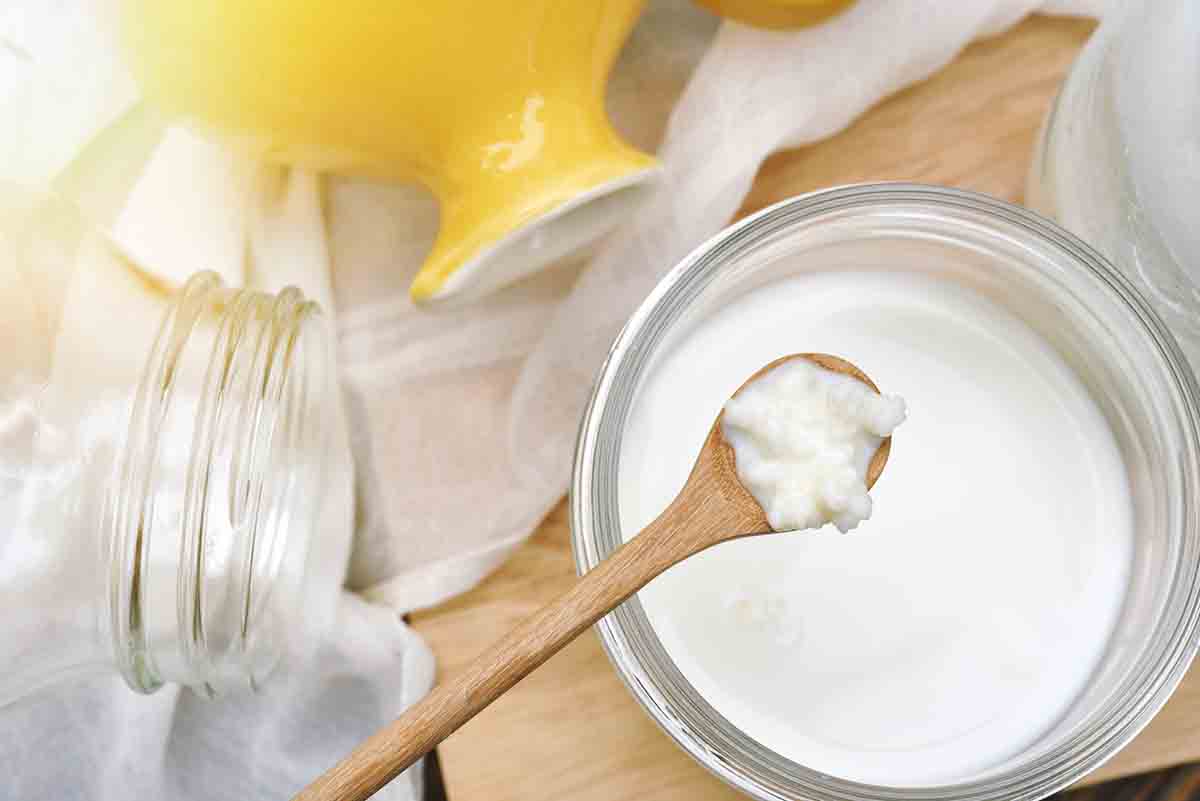
Studies suggest that bacterial imbalances in the gut contribute to stress and anxiety. Naturally fermented kefir is rich in beneficial bacteria, which improve gut health, reduce anxiety, lessen stress, and may protect against inflammation. Probiotic bacteria also improve serotonin levels and can produce GABA, a neurotransmitter that promotes relaxation and eases tension. Low levels of GABA have been linked with increased anxiety.
Recipe tips: Combine kefir with rolled oats, chia seeds, dried cherries, and vanilla extract, and refrigerate overnight for an instant breakfast bowl; make a zesty dressing with kefir, minced garlic, jalapeño peppers, and cilantro; strain kefir through a cheesecloth overnight, then mix in minced chives and garlic powder for a creamy spread.
Turkey
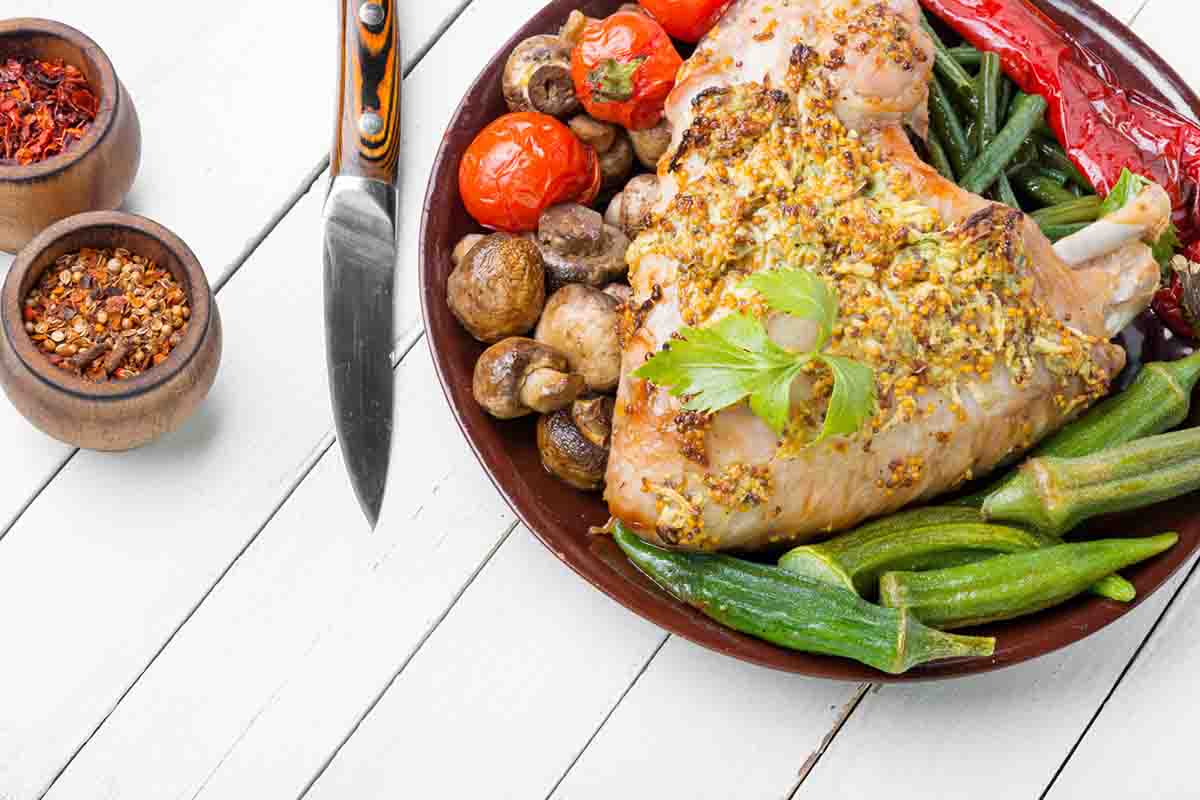
It’s high in tryptophan, an amino acid precursor to serotonin and melatonin. (Serotonin is a neurotransmitter that promotes calm and relieves stress, while melatonin is a hormone that enhances sleep.) Studies show that tryptophan lessens anxiety and also improves sleep, even at doses as low as 250 mg—the amount in just one serving of turkey. Turkey is also rich in high-quality protein that minimizes blood sugar spikes and enhances energy. Vegan sources of protein and tryptophan include edamame, kidney beans, white beans, peanuts, and tofu.
Recipe tips: Spread turkey slices with mashed avocado, layer with arugula, red onions, and shredded carrots, and roll up; combine cooked turkey cubes with celery, scallions, dried cranberries, and kefir; sauté cooked turkey with mushrooms, onions, garlic, and spinach, and toss with spiralized sweet potatoes.
Sunflower Seeds
They’re rich in protein and B vitamins, which keep the adrenal glands healthy and improve the body’s response to stress. Studies show that thiamine (vitamin B) protects the adrenal glands from exhaustion and reduces the body’s reaction to cortisol. Pantothenic acid (vitamin B) may buffer cortisol and enhance adrenal function, and deficiencies have been linked with compromised adrenal function. Niacin (vitamin B) helps the body convert tryptophan to serotonin, and also improves sleep. And pyridoxine (vitamin B) is necessary for the synthesis of GABA, serotonin, and other neurotransmitters that protect against stress. Sunflower seeds are also a good source of zinc, which has mood-regulating and antianxiety effects. Studies have linked low blood levels of zinc with increased feelings of anxiety.
Recipe tips: Combine sunflower seeds, kale, parsley, olive oil, lime juice, garlic, and red pepper flakes in a food processor, and blend into a zesty chimichurri sauce; soak sunflower seeds overnight, then drain and purée with kefir, olive oil, and apple cider vinegar for a healthy mayo alternative; combine sunflower seeds with mashed kidney beans, minced red peppers, and shredded carrots, then form into burgers.
Tea
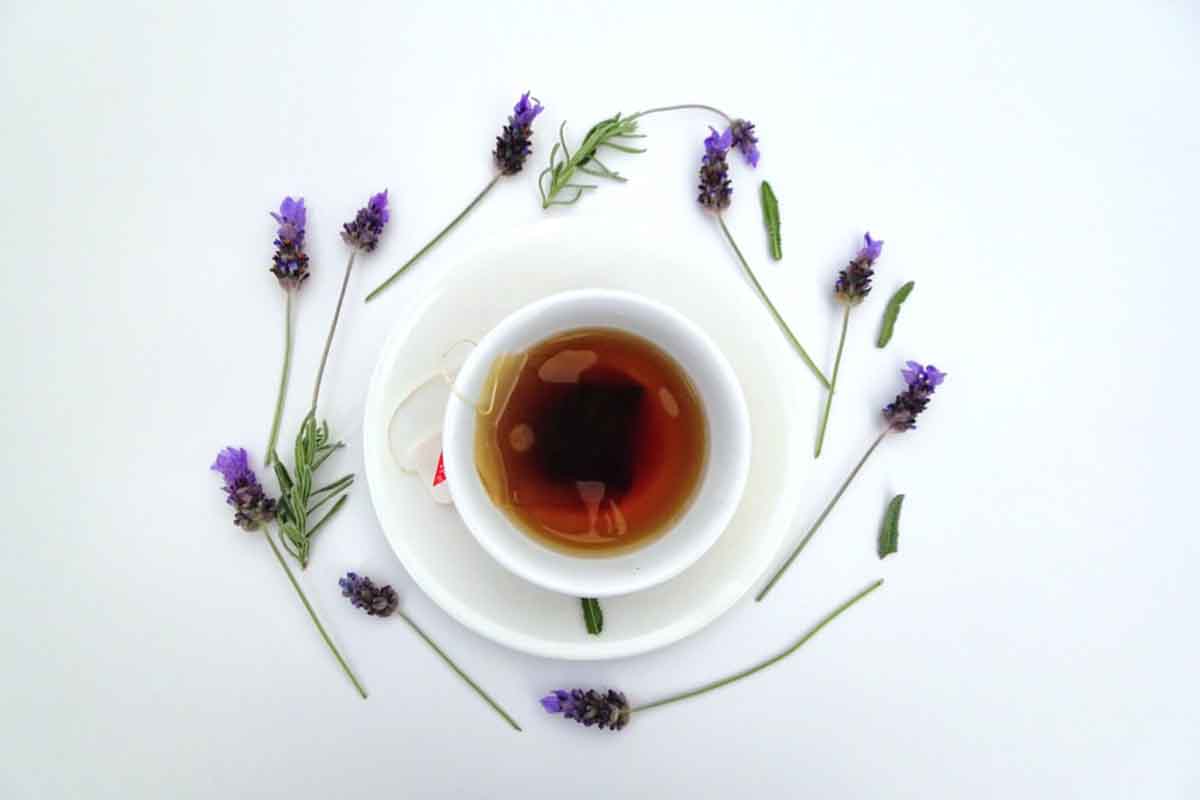
While coffee is a no-no on an adrenal health diet, some varieties of tea can help relieve stress and anxiety and protect the adrenals. Green tea contains L-theanine, an amino acid that enhances the production of calming neurotransmitters. While it does contain caffeine, research suggests that L-theanine offsets caffeine's stimulatory effects. Studies also show that L-theanine induces alpha-brain wave activity, which correlates with a perceived state of relaxation. Rooibos, made from the leaves of the African red bush, has a balancing effect on cortisol levels. And it’s caffeine-free. Chamomile (also caffeine-free) has been shown in many studies to relieve anxiety and stress and improve sleep. All three also contain antioxidants that protect against inflammation.
Recipe tips: Make a strong rooibos tea, stir in honey and vanilla, then add ice and almond milk for a cooling latte; make a soothing digestive tea with chamomile, peppermint tea, fennel seeds, and chopped ginger; blend matcha green tea powder with kefir and bananas for a morning coffee alternative.
Red Peppers
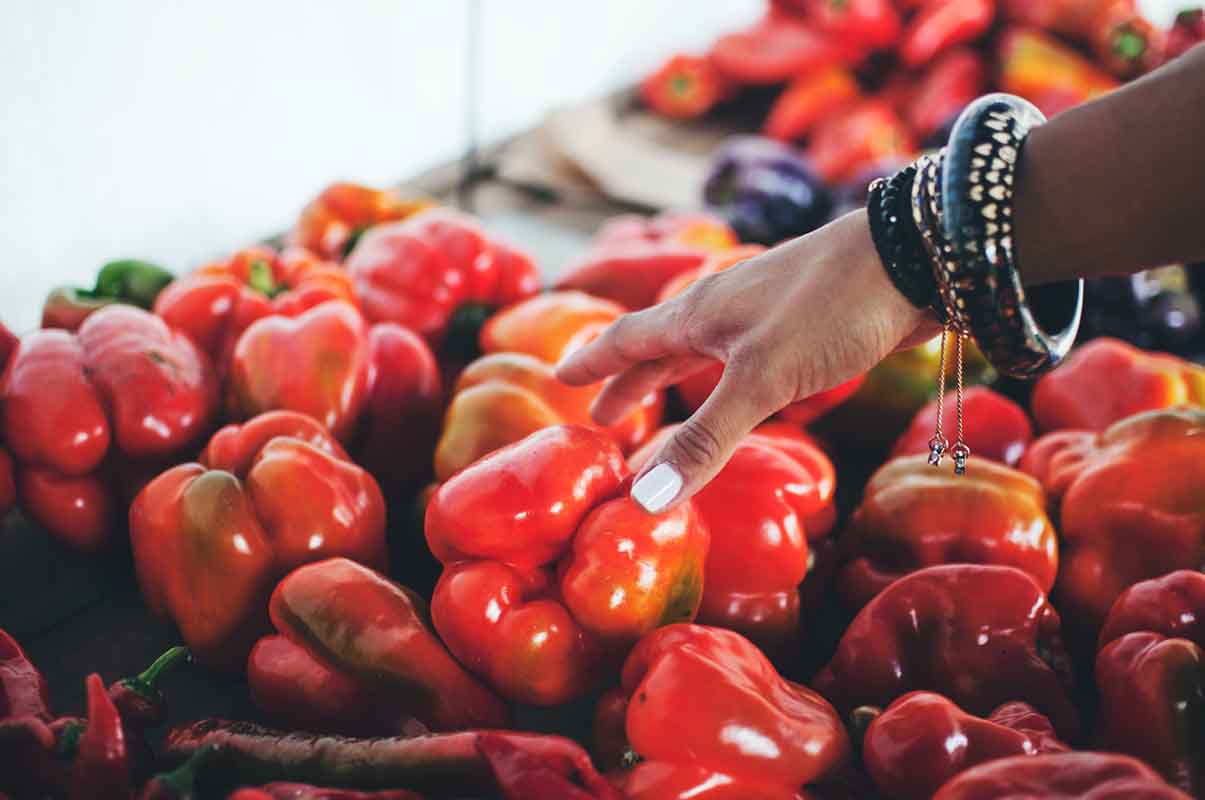
They’re an excellent source of vitamin C, which helps support adrenal function and balance cortisol. In some studies, vitamin C improved the ability of the adrenals to adapt to surgical stress and normalized cortisol levels. Other studies show that vitamin C reduces anxiety, minimizes stress, and improves mood.
Recipe tips: Halve red peppers, remove seeds, stuff with sautéed collards, leeks, and cooked quinoa, and roast until tender; combine chopped red peppers with zucchini, eggplant, tomatoes, olive oil, garlic and oregano, and simmer until tender; simmer puréed roasted red peppers with pasta sauce, Kalamata olives, capers, basil, and red pepper flakes for a puttanesca sauce.
Collard Greens
They’re high in magnesium, a mineral that helps relieve stress, as well as folate, a B vitamin that’s essential for the production of neurotransmitters that mitigate anxiety. Spinach, chard, turnip greens, and kale are also excellent sources of magnesium and folate.
Recipe tips: Simmer chopped collard leaves, red peppers, ginger, and curry powder in coconut milk; sauté shredded collard leaves in olive oil with chopped black olives, garlic, and cumin; steam whole collard leaves until tender, then use as a wrap for cooked chickpeas and quinoa.
Written by Lisa Turner for Better Nutrition and legally licensed through the Matcha publisher network. Please direct all licensing questions to legal@getmatcha.com.
Shop HappyLight
Learn more about how HappyLight therapy lamps can help too!





